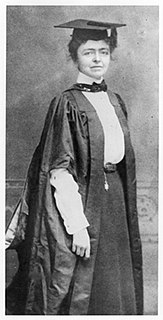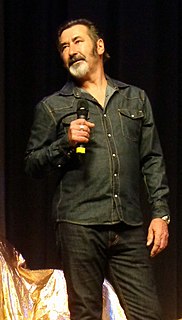A Quote by Richard Flanagan
History, like journalism, is ever a journey outwards, and you must report back what you find and no more.
Related Quotes
My father was my mother's home, the one place that she knew she could be safe. It was all a journey of faith for him, and I think he felt like if you don't find more love and understanding at the end of a journey like that, then you are lost - and if you only find hate and resentment, it will destroy you. I believe that.
There is some level on which this life must occasionally become repugnant and unappetizing to you and you must step back from it. And then you have a new relationship with it, and then you step back into it from a different angle - with a new appetite - and then you find the next leg of your journey.
It’s an old Orc axe, which means he’s been in battle. Orcs have killed members of his family, and he’s trying to find the Orc that did it to him so that he can give it back. But as the journey goes on, Bifur actually becomes more lucid. He becomes a bit more focused, and the journey is a bit healing for him.
If you find your truth you must follow it. You could find it in a paper bag, or in a statue, or in a slaughterhouse; you might find it dangling somewhere. People might say, What the heck are you doing? but its ok if they dont understand. And if you follow it, stay true to it, and respect it, you could be in store for the greatest journey you could ever imagine.
I have had the accomplishment of something like this at heart ever since I was a boy.... So I feel tonight like the man who is lodging happily in the inn which lies half way along the journey and that in time, with a fresh impulse, we shall go the rest of the journey and sleep at the journey's end like men with a quiet conscience.






































